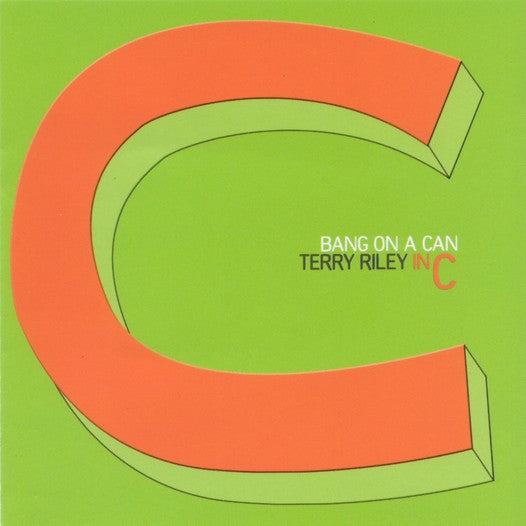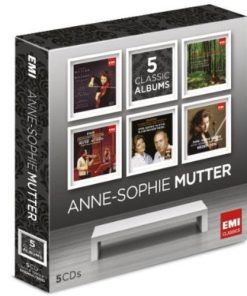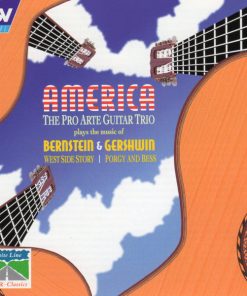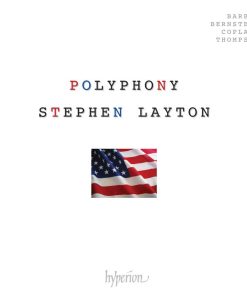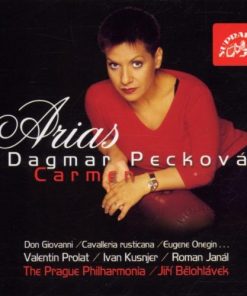RILEY: IN C – BANG ON A CAN CANTALOUPE
$ 2,99 $ 1,79

In 1964, Terry Riley kicked off a revolution with his landmark piece In C, inspiring such young composers as Philip Glass and Steve Reich. The Bang on a Can All-Stars reinterpret this minimalist classic with an explosive combination of instruments from around the globe, propelling this transcendent ’60s masterpiece into the future.
In C is a 42-minute long piece that is played continuously from beginning to end. There are no track breaks on the CD itself, in order to instill a seamless listening experience — as the piece was meant to be heard, and as it was presented live at the World Financial Center on November 20, 1998. John Schaefer, host of WNYC’s New Sounds, wrote the following introduction for that concert:
“Terry Riley’s piece In C is one of the seminal works of the late 20th century. Premiered in 1964, it was the work that introduced the musical style now known as Minimalism to a mainstream audience. Full of repeating cells, insistent rhythms, and high energy, In C is a work that can also be endlessly colorful. It is an ‘open score,’ meaning that it can be played by any combination of instruments. Over the decades, it has been played by percussion ensembles, guitar groups, a Chinese traditional orchestra, and a microtonal band, among hundreds of others. In C had a deep and lasting impact on contemporary classical composers like Steve Reich and John Adams; but it also affected the rock world, influencing artists like John Cale and Brian Eno.”
Fourteen years later, Schaefer looked back on the concert with a profound sense of accomplishment and awe. “We had started out talking about a piece to go with Brian Eno’s Music For Airports. I emailed Terry Riley to ask if he’d be okay with us playing In C. Terry was all for it. The All-Stars agreed it would be an interesting pairing of works, and so the concert was set.
“When the piece ended, I ran backstage, where the All-Stars were looking dazed. Evan Ziporyn said, ‘Did you hear that?’ I replied that we’d all heard that. ‘We got about 10 minutes in,’ he said, ‘and we just started looking at each other, as if to say, are you hearing what I’m hearing?’ A quietly muttered ‘holy shit’ rounded out the postgame interviews.
“Having been sold on the piece, Bang on a Can now wanted to release a recording of it. It was quickly agreed that they were unlikely to be able to get a better performance than the one we’d recorded. Now you too can hear what is, for me, still my most memorable moment with Bang On A Can.”
Fast Shipping and Professional Packing
Due to our longstanding partnership with UPS FedEx DHL and other leading international carriers, we are able to provide a range of shipping options. Our warehouse staff are highly trained to pack your goods exactly according to the specifications that we supply. Your goods will undergo a thorough examination and will be safely packaged prior to being sent out. Everyday we deliver hundreds of packages to our customers from all over the world. This is an indication of our dedication to being the largest online retailer worldwide. Warehouses and distribution centers can be located in Europe as well as the USA.
Orders with more than 1 item are assigned processing periods for each item.
Before shipment, all ordered products will be thoroughly inspected. Today, most orders will be shipped within 48 hours. The estimated delivery time is between 3-7 days.
Returns
The stock is constantly changing. It's not entirely managed by us since we are involved with multiple parties such as the factory and our storage. The actual stock can fluctuate at any time. Please understand it may happen that your order will be out of stock when the order is placed.
Our policy is valid for 30 days. If you haven't received your product within 30 days, we're not able to issue either a return or exchange.
You are able to return a product if it is unused and in the same condition when you received it. It must also still remain in the original packaging.
Related products
MUSIC CD
